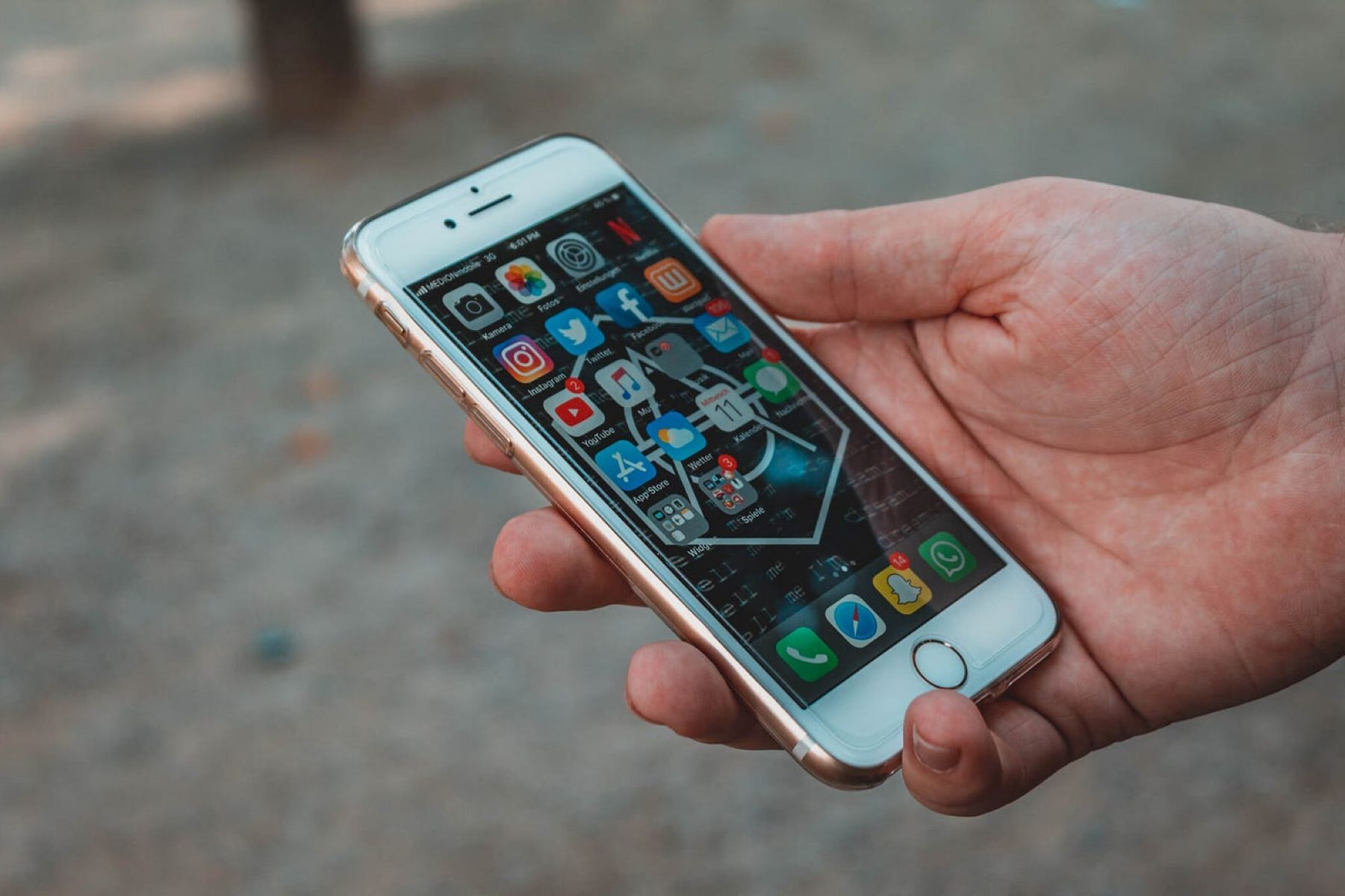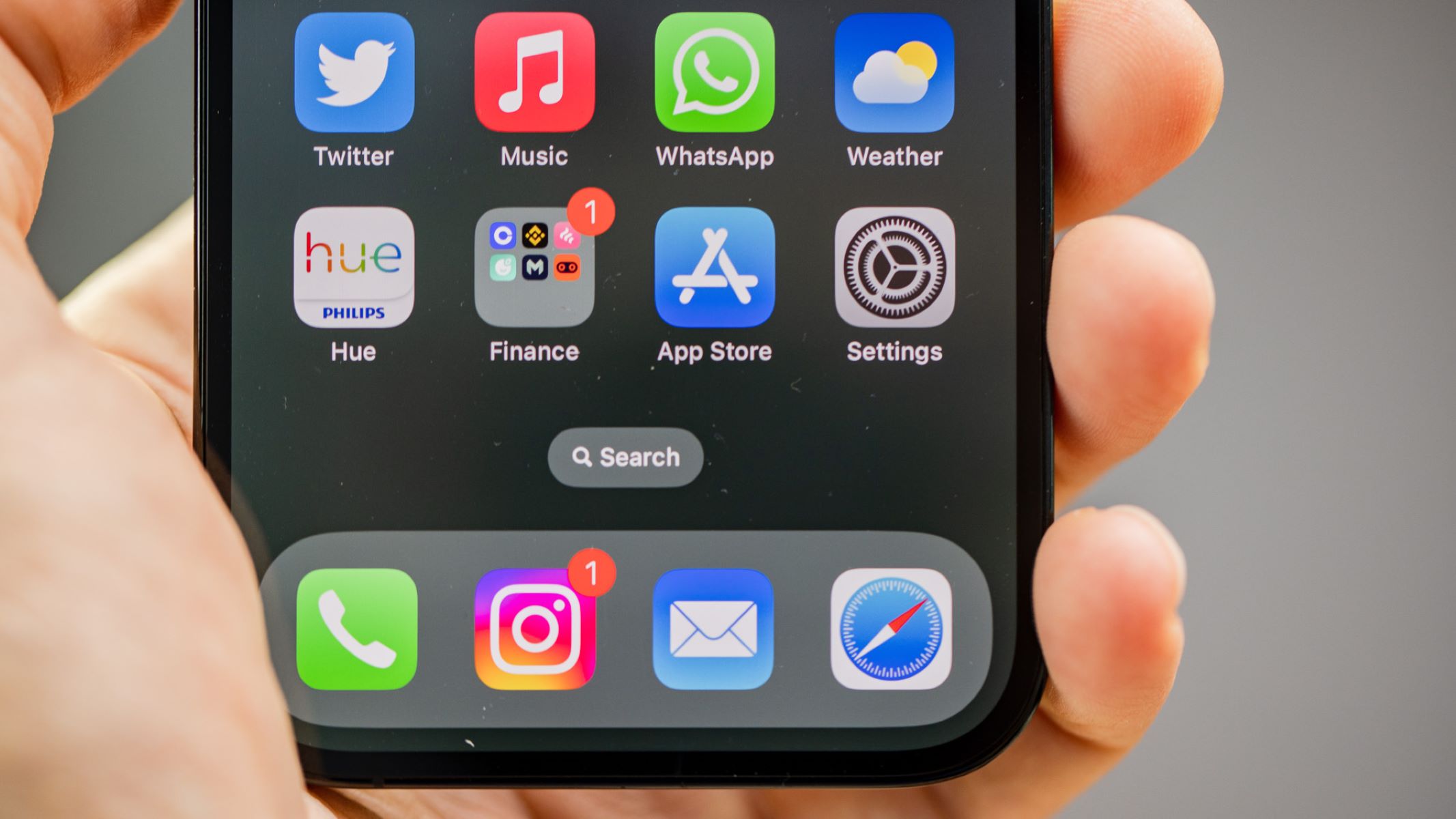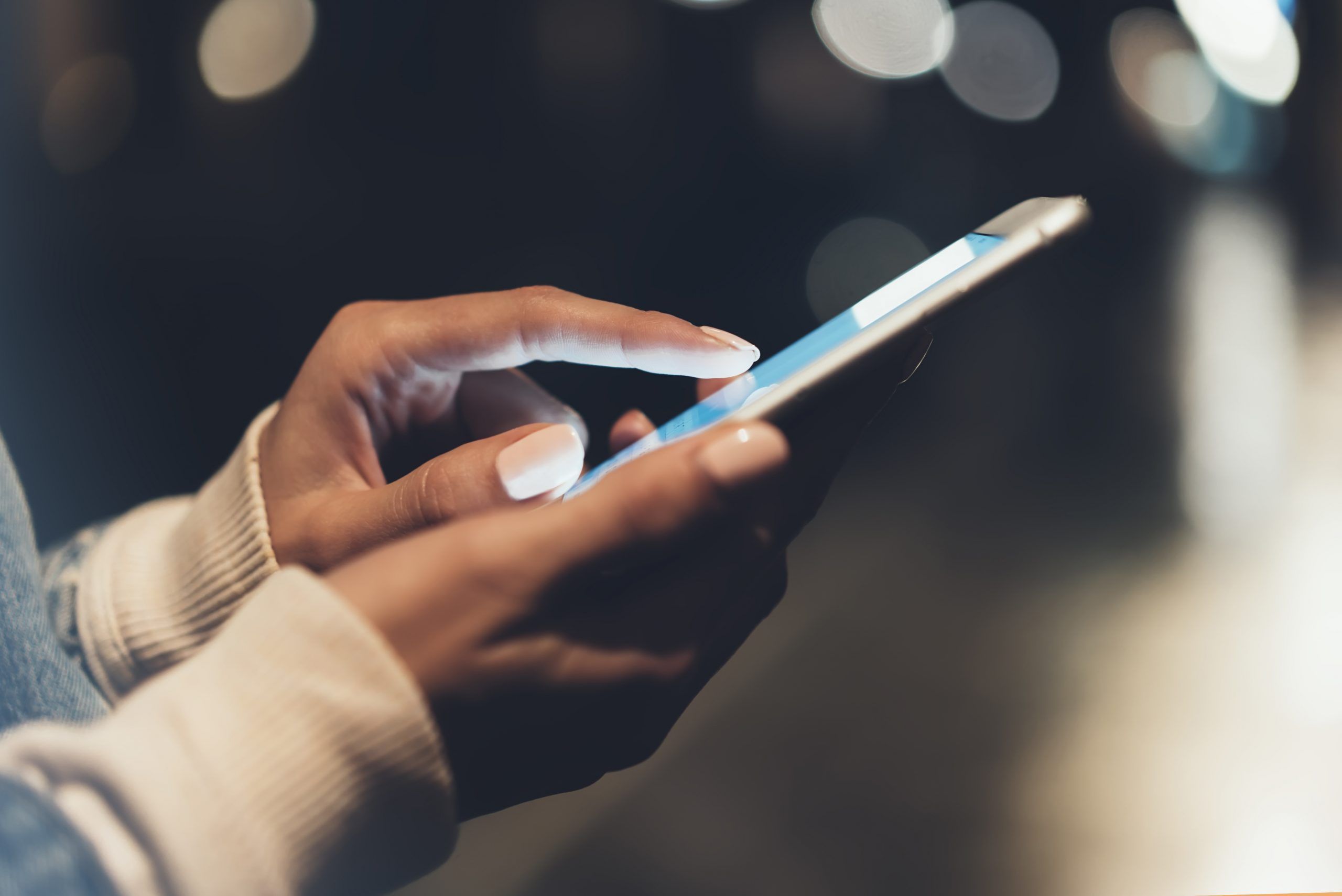Introduction
With the advancement of technology, our smartphones have become essential tools in our daily lives. Unfortunately, this increased reliance on our iPhones also makes us vulnerable to various privacy threats, including the installation of spy apps. Spy apps are covert applications that can be installed on your iPhone without your knowledge, allowing someone to monitor your calls, messages, and even track your location.
Being a victim of spy apps can be a harrowing experience, as it compromises your privacy and leaves you feeling violated. It is important to understand the signs of a possible spy app on your iPhone and take the necessary steps to stop it immediately.
In this article, we will explore the signs that indicate your iPhone may have a spy app installed, the potential implications of having a spy app on your device, and most importantly, the steps you can take to protect yourself and remove any spy apps that may be present.
It is crucial to note that spy apps can be installed on iPhones with or without physical access to the device, so it is essential to remain vigilant and take proactive measures to secure your iPhone’s privacy.
By following the steps outlined in this guide, you will gain the knowledge and tools necessary to identify and eliminate spy apps from your iPhone, ensuring your privacy and peace of mind.
Understanding Spy Apps
Spy apps, also known as surveillance apps or tracking software, are applications that are designed to monitor and track the activities on a targeted device, such as an iPhone. These apps are typically installed without the user’s consent or knowledge, making them particularly invasive and intrusive.
Spy apps can be used for a variety of purposes, including monitoring a child’s online activities, keeping an eye on employees, or even spying on a partner. While some may have legitimate uses, such as parental monitoring and employee tracking with proper consent, the majority of spy apps are used for malicious purposes.
The capabilities of spy apps can vary, but they often include features such as:
- Call monitoring: Spy apps can record incoming and outgoing calls, including the duration and time of each call.
- Message tracking: These apps can intercept and read text messages and instant messaging conversations.
- Location tracking: Spy apps can track the GPS location of the device in real-time, allowing the person monitoring to know where the device is at any given time.
- Media monitoring: Some spy apps can access and view photos, videos, and other media files on the device.
- Keylogging: Certain spy apps can record every keystroke entered on the device, including passwords and sensitive information.
It is important to note that the installation and use of spy apps without the consent of the device owner is illegal in many jurisdictions. These apps pose a significant threat to personal privacy and can have devastating consequences if misused or abused.
It is crucial to stay informed about spy apps and their potential implications in order to protect yourself and your iPhone from unauthorized surveillance.
In the following sections, we will discuss the signs that may indicate the presence of spy apps on your iPhone and the steps you can take to stop and remove them.
Signs Your iPhone May Have a Spy App Installed
It can be alarming to discover that your iPhone may have a spy app installed, but being aware of the signs can help you identify any potential security breaches. Here are some common indicators that may suggest the presence of a spy app on your iPhone:
- Battery Drain: If you notice a sudden and significant decrease in your iPhone’s battery life, it may be a sign that a spy app is running in the background. Spy apps require continuous monitoring and data transmission, which can cause your battery to drain faster than usual.
- Unusual Data Usage: Spy apps often rely on a constant internet connection to send data to the monitoring person. If you notice a substantial increase in your data usage, especially when you are not actively using your iPhone, it could be a red flag that your device is transmitting data to a spy app server.
- Slow Performance: Spy apps can use a significant amount of system resources, causing your iPhone to become slow and unresponsive. If you experience frequent lagging, freezing, or crashing of apps, it may be an indication that a spy app is running in the background.
- Strange Text Messages: If you receive unusual or random text messages containing a combination of numbers, letters, or symbols, it could be a covert command sent by a spy app to activate certain functions or retrieve data from your iPhone.
- Background Noises: When making calls, if you hear strange noises, echoes, or static that you don’t typically encounter, it could be a sign that your iPhone is being monitored. Spy apps can sometimes cause interference or disruptions during phone calls.
- Unexplained Data Transfers: Spy apps require an internet connection to transmit the recorded data from your iPhone to the monitoring person. If you notice unexpected data transfers occurring even when you are not actively using your iPhone, it could be an indication of a spy app silently sending your information to a remote server.
While the presence of these signs does not guarantee the existence of a spy app on your iPhone, they serve as warning signals that shouldn’t be ignored. If you suspect that your iPhone may have a spy app installed, it is vital to take immediate action to protect your privacy.
In the upcoming sections, we will discuss the steps you can take to stop spy apps on your iPhone and safeguard your personal information.
How Spy Apps Can Affect Your Privacy
The presence of spy apps on your iPhone can have severe implications for your privacy and personal security. Understanding how these apps can infiltrate and compromise your privacy is essential in order to fully grasp the urgency of stopping them. Here are some ways in which spy apps can impact your privacy:
- Invasion of Personal Communications: Spy apps can intercept and monitor your calls, text messages, emails, and instant messaging conversations. Your private conversations, thoughts, and personal information can be exposed to individuals with unauthorized access to your iPhone.
- Location Tracking: Spy apps can track the real-time location of your iPhone, allowing the person monitoring to know where you are at all times. This intrusion into your movements violates your privacy and compromises your safety.
- Breach of Sensitive Information: Spy apps can access and retrieve sensitive data such as usernames, passwords, financial information, and personal photos from your iPhone. This can lead to identity theft, financial loss, and reputational damage.
- Monitoring of Social Media: Spy apps can gain access to your social media accounts, monitoring your posts, messages, and interactions. Your privacy on social media platforms can be invaded, jeopardizing your personal and professional relationships.
- Blackmail and Extortion: In the wrong hands, the information collected by spy apps can be used for malicious purposes, including blackmail and extortion. The knowledge of your private communications and activities can be used as leverage against you.
- Loss of Trust and Mental Well-being: Discovering that you are being monitored by a spy app can be emotionally distressing and damaging to your relationships. It can erode trust, create paranoia, and significantly impact your mental well-being.
It is crucial to address the presence of spy apps on your iPhone promptly to protect your privacy, personal information, and peace of mind. By taking the necessary steps to remove and prevent spy app installations, you can regain control over your device and safeguard your privacy.
In the following sections, we will outline the steps you can take to stop spy apps on your iPhone and ensure your personal data remains secure.
Steps to Stop Spy Apps on iPhone
Discovering that your privacy may have been compromised by a spy app on your iPhone can be unsettling. However, there are steps you can take to stop these invasive apps and regain control over your device. Here are the essential steps to remove and prevent spy apps on your iPhone:
- Update Your iPhone’s Software: Keeping your iPhone’s software up to date is crucial for security purposes. Regularly check for software updates and install them promptly to ensure your device has the latest security patches and bug fixes. Updating your software can help patch vulnerabilities that spy apps may exploit.
- Check Your iPhone for Unknown Apps: Review the apps installed on your iPhone and look for any unfamiliar or suspicious applications. Uninstall any apps that you don’t recognize or remember downloading. Additionally, pay attention to apps with generic names or icons that could be disguising spyware.
- Restrict Access to Installing Apps: Prevent unauthorized installation of apps on your iPhone by enabling Restrictions. Go to Settings, tap on Screen Time, select Content & Privacy Restrictions, and set a passcode. From there, you can restrict the ability to download apps, making it harder for spy apps to be installed without your knowledge.
- Reset Your iPhone to Factory Settings: If you suspect that your iPhone has a persistent spy app that cannot be removed by uninstalling individual apps, you may need to reset your iPhone to factory settings. Remember to back up your data before performing a factory reset, as it erases all content and settings on your device.
- Use Anti-Spyware Apps to Detect and Remove Spy Apps: There are various anti-spyware apps available that can help you detect and remove spy apps from your iPhone. These apps scan your device for any malicious software and provide you with tools to remove them. Research and choose a reputable anti-spyware app from the App Store and use it regularly to ensure your device remains spyware-free.
By following these steps, you can significantly reduce the risk of spy apps on your iPhone and protect your privacy. Remember to remain vigilant and regularly monitor your device for any signs of suspicious activity. Taking proactive measures to secure your iPhone will help safeguard your personal information and ensure your peace of mind.
Update Your iPhone’s Software
One of the most important steps in stopping spy apps on your iPhone is to regularly update your device’s software. iOS updates not only bring new features and improvements but also include crucial security patches that help protect your iPhone from potential vulnerabilities exploited by spy apps and other malicious software.
Here are some key points to consider when updating your iPhone’s software:
- Check for Updates: Keep an eye out for the latest iOS updates released by Apple. To check for updates, go to the “Settings” app on your iPhone, tap on “General,” and select “Software Update.” If there is an update available, make sure to download and install it.
- Ensure Wi-Fi Connection: It is recommended to connect your iPhone to a stable Wi-Fi network before performing any software updates. This ensures a faster and more reliable download and minimizes the risk of interrupted updates.
- Backup Your Data: Before initiating any software update, it is crucial to back up your iPhone’s data to ensure you don’t lose any important information. You can backup your device using iCloud or iTunes.
- Stay Up to Date: Set your iPhone to automatically download and install updates. To do this, go to “Settings,” tap on “General,” select “Software Update,” and enable the “Download iOS updates” option. This way, your iPhone will continuously check for new updates and install them automatically.
- Restart After Update: After successfully installing an update, it is recommended to restart your iPhone. This helps ensure that the new software updates take effect and can help prevent any potential issues or conflicts caused by the update.
By keeping your iPhone’s software up to date, you not only benefit from the latest features and improvements but also ensure that your device is protected against potential security vulnerabilities that spy apps may exploit. Regularly checking for and installing software updates is an essential step in maintaining the security and privacy of your iPhone.
In the next sections, we will discuss additional steps you can take to further protect against spy apps on your iPhone.
Check Your iPhone for Unknown Apps
In order to detect and remove spy apps on your iPhone, it is important to regularly check your device for any unknown or suspicious applications. Spy apps are often disguised as harmless or inconspicuous apps, making it challenging to identify them at first glance.
Here are the steps to check your iPhone for unknown apps:
- Inspect Your App Library: Swipe right on your iPhone’s home screen to access the App Library. Look through the app icons and names to identify any unfamiliar apps. Pay attention to generic app icons or names that don’t provide clear descriptions of their functions.
- Review Installed Apps: Navigate to the home screen of your iPhone and scroll through all the app icons. Take note of any apps that you don’t recognize or remember installing. Sometimes spy apps can be disguised as utility apps, calculators, or even games.
- Check App Permissions: Go to the “Settings” app on your iPhone, select “Privacy,” and review the permissions granted to each app. Look for any apps that have unnecessary or suspicious permissions, such as access to your microphone, camera, or location, without a justifiable reason.
- Research Unknown Apps: If you come across any unfamiliar apps, conduct a quick online search to gather more information about them. Read reviews, check their developer’s website, and look for any red flags or warnings from other users who may have encountered these apps.
- Uninstall Suspicious Apps: If you find any apps that raise suspicion or seem unfamiliar, it is best to err on the side of caution and remove them from your device. Press and hold on the app icon until it starts shaking, then tap the “X” icon that appears to delete the app.
Regularly checking for unknown apps on your iPhone helps you maintain control over the applications installed on your device and allows you to identify and remove any potential spy apps. By being diligent in reviewing your app library and taking prompt action to uninstall suspicious apps, you can protect your privacy and prevent unauthorized access to your personal information.
In the next sections, we will discuss additional measures you can take to secure your iPhone from spy apps.
Restrict Access to Installing Apps
One effective way to prevent the installation of spy apps on your iPhone is by restricting access to app installations. By enabling restrictions, you can add an extra layer of protection and make it more difficult for unauthorized individuals to install apps without your knowledge or consent.
Here are the steps to restrict access to installing apps on your iPhone:
- Open Settings: Tap on the “Settings” app on your iPhone’s home screen to access the device’s settings.
- Go to Screen Time: Scroll down and tap on “Screen Time” among the list of options available in the settings menu.
- Select Content & Privacy Restrictions: Inside Screen Time, tap on “Content & Privacy Restrictions” to access the settings for restricting app installations.
- Enable Restrictions: Toggle the switch next to “Content & Privacy Restrictions” to turn it on.
- Set a Passcode: You will be prompted to set a passcode for the restrictions. Choose a passcode that is secure and not easily guessable.
- Disallow App Installations: Under the “Allowed Apps” section, tap on “Installing Apps” to access the settings for app installations.
- Disable App Installations: In the “Installing Apps” settings, switch off the option to “Allow” app installations. This will restrict the installation of new apps on your iPhone.
- Further Customize Restrictions: You can explore other options under “Content & Privacy Restrictions” to customize additional settings, such as preventing app deletions and restricting access to specific app categories.
By enabling restrictions on app installations, you can control who has the ability to download and install apps on your iPhone. This reduces the risk of unauthorized installations, including potential spy apps, and provides you with a greater level of security and privacy.
It is important to remember the passcode you set for these restrictions, as you will need it to make any changes or disable the restrictions in the future.
In the next sections, we will discuss more steps you can take to protect your iPhone from spy apps and maintain your privacy.
Reset Your iPhone to Factory Settings
If you suspect that your iPhone may have a persistent spy app that cannot be removed by simply uninstalling individual apps, performing a factory reset is a more extensive step you can take to eliminate any potential spyware and restore your device to its original state.
Before proceeding with a factory reset, it is essential to back up your iPhone’s data to ensure you don’t lose any important information. Here are the steps to reset your iPhone to factory settings:
- Backup Your Data: Connect your iPhone to a stable Wi-Fi network and launch the “Settings” app. Tap on your Apple ID at the top of the screen, select “iCloud,” and enable “iCloud Backup” if it is not already enabled. Tap on “Back Up Now” to initiate a full backup of your device.
- Disable Find My: After backing up your data, go back to the main settings screen and tap on your Apple ID. Select “Find My,” then tap on “Find My iPhone” and disable the “Find My iPhone” feature by moving the switch to the off position. You may need to enter your Apple ID password to confirm the change.
- Perform the Factory Reset: From the main settings screen, tap on “General,” scroll down, and select “Reset.” Choose “Erase All Content and Settings” to initiate the factory reset process. You may be prompted to enter your passcode and Apple ID password to confirm the reset.
- Set up Your iPhone: After the reset is complete, your iPhone will restart and present you with the initial setup screen. Follow the on-screen instructions to set up your device as new or restore it from the previous backup you created.
Performing a factory reset erases all content and settings on your iPhone, including installed apps, personal data, and configurations. This can help remove any persistent spy apps that may have been hiding on your device.
However, it is important to note that a factory reset should only be done when necessary, as it permanently deletes your data. Before proceeding, ensure you have backed up all your important files and information.
In the following sections, we will discuss additional measures you can take to further protect your iPhone from spy apps and safeguard your privacy.
Use Anti-Spyware Apps to Detect and Remove Spy Apps
In the battle against spy apps on your iPhone, utilizing anti-spyware apps can be an effective and proactive approach. These specialized apps are designed to scan your device for potential spyware and provide you with the means to detect and remove any malicious software.
Here are the steps to utilize anti-spyware apps to detect and remove spy apps:
- Research and Choose a Reputable Anti-Spyware App: There are several anti-spyware apps available on the App Store. Take the time to research and choose a reputable one that has positive reviews and a track record of effectively detecting and removing spy apps.
- Download and Install the App: Open the App Store on your iPhone, search for the chosen anti-spyware app, and download it. Follow the on-screen instructions to install the app on your device.
- Scan Your iPhone for Spyware: Launch the anti-spyware app and initiate a scan of your iPhone. The app will analyze your device for any potential spy apps or suspicious activity.
- Follow the App’s Recommendations: After the scan is complete, the anti-spyware app will provide you with a report of its findings. If any spy apps or suspicious behavior is detected, follow the app’s recommendations on how to remove or mitigate the threat.
- Regularly Update and Use the Anti-Spyware App: It is important to keep the anti-spyware app updated to ensure it has the latest spyware definitions and detection capabilities. Regularly scan your iPhone using the app to monitor for any new threats that may arise.
Using anti-spyware apps adds an extra layer of defense to your iPhone by actively seeking out and removing any potential spy apps. Regularly scanning your device can help detect and eliminate spyware before it can compromise your privacy.
Remember, prevention is key. Combine the use of anti-spyware apps with other protective measures, such as updating your software, being cautious of unknown apps, and restricting installations, to maximize the security of your iPhone.
In the upcoming sections, we will discuss additional steps you can take to protect your iPhone from spy apps and maintain your privacy.
Conclusion
Protecting your privacy and maintaining control over your iPhone is crucial in today’s digital landscape. The presence of spy apps can compromise your personal information, invade your privacy, and leave you feeling vulnerable. However, by staying vigilant and taking proactive measures, you can stop spy apps on your iPhone and safeguard your data.
In this article, we explored the signs that may indicate the presence of spy apps on your iPhone, including battery drain, unusual data usage, slow performance, strange text messages, background noises, and unexplained data transfers. Recognizing these signs can help you identify potential security breaches and take appropriate action.
We also discussed how spy apps can affect your privacy, such as with the invasion of personal communications, location tracking, the breach of sensitive information, monitoring of social media, and the potential for blackmail and extortion. Understanding these implications highlights the importance of addressing spy apps promptly to protect your privacy and personal security.
We provided a step-by-step guide to stopping spy apps on your iPhone, including updating your device’s software, checking for unknown apps, restricting access to installing apps, resetting your iPhone to factory settings, and utilizing anti-spyware apps to detect and remove spy apps.
Remember, prevention is key. Regularly updating your iPhone’s software, being cautious of unfamiliar apps, restricting installations, and utilizing anti-spyware tools can significantly reduce the risk of spy apps compromising your privacy.
By taking these steps, you can regain control over your iPhone, ensure your personal information remains secure, and enjoy peace of mind knowing that your privacy is protected.
Stay proactive, stay informed, and protect your iPhone from spy apps to safeguard your digital life.

























